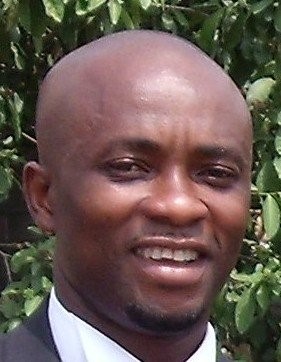“They say that the broom is not important, but in the morning they look for it.” – Igbo proverb
“Nonsense is so good only because common sense is so limited,” George Santayana highlighted in his 1905 work ‘The Life of Reason: Reason in Common Sense’. He sought to outline how many among us centre our knowledge on our emotions instead of reasoning. We mistake our feelings around issues and of things for the issues and things themselves.
It is true we resonate with our feelings, but just because it feels flat and steady underneath you it does not make it the reality. Sadly, because we are so satisfied with our sense-making in our experiences, we assume we are actually making sense. Interesting, this mistake in commonsense is lost on many. And it is because we are so ingrained in our emotions we do not realise, a lot of times, it impoverishes our experience of the moment.
We do not have all the answers about life yet – and we will probably never will have. As Carl Sagan puts it: “The universe will always be much richer than our ability to understand it”. Nevertheless, we must always strive to understand things in accordance with reality; not with what we feel. There are volumes and volumes written on how we ought to behave, yet very few touch on our sense-making. And this is in spite of the popularity of Ralph Emerson’s counsel that “we need to watch our thoughts for they become our words, and our words subsequently become our actions, and they in turn become our habits, which concretise into our character and ultimately becomes our destiny”.
We want to behave right, but we do not encourage ourselves to think right first. We think about a lot of things in this life. But how well are we grounded in sense-making to make our thinking process meaningful enough to ensure the words we utter from our understanding make the right sense to the world?
The human brain can be compared to a galaxy. It is a system of millions and millions of thoughts, held together by an understanding that gravitates toward particular ideals. These thoughts pervade every space in us curiously desiring to discern the world around us, and the energy we give it (the way we make sense of it) flows out as our words. Making sense is the vital rousing energy of life, the source of our essence. As Aristotle puts it, “we are reasoning animals”.
To live is to quest for understanding and to know what is around us. But this does not mean we always make sense in our quests. We desire to be reasonable – but if we have not made efforts at developing our reasoning faculty, we usually end up not being reasonable most of the time. This un-reasonableness explains the differences in opinions of people regarding subjects.
The explanation of these differences, according to René Descartes – the French philosopher, mathematician and scientist – is not because some individuals are endowed with better sense-making genes or abilities, but that some of us as a result of not developing our reasoning prowess “conduct our thoughts along different lines, and do not fix our attention on the same objects”.
For example, if you position yourself neutrally and listen to politicians belonging to different ideologies discussing how to build a ‘free and just’ society, you notice how they each strive to fix their attention on aspects of the argument that favour where they lean. Their sense-making is more like picking food from a buffet serving. They choose the ones that taste good on their tongues. So, imagine you listening to them and you have not had the privilege of developing your reasoning prowess; you will end up nodding ‘yes’ to the one whose talk resonates with your emotions. It is the reason many of us get side-tracked about issues and events.
This awareness reminds us to do more than simply swallow any information fed to us, lest it blinds us to reality again and again. To trust any process and/or phenomena without questioning whether our sense-making of it is true to reality is to do our humanity a big disservice. Sadly, many of us are caught in this web. It is the web of the astrologer. We have pigeon-holed our sense-making. And so as soon as we hear about anything, we treat it like the way astrologers treat humans. We place it in one of the pigeon-holes, and knowing the generic characteristics of members in that hole, we conclude we understand that individual. This attitude prevents us from intimately knowing or understanding the world around us.
To become better sense-makers, Descartes entreats us “never to accept anything for true which we do not clearly know to be such”. That is to say we should avoid precipitancy and prejudice. The second is “to divide whatever difficulties we encounter in our understanding into as many parts as possible, and as might be necessary for its adequate solution”.
Thirdly, we should “conduct our thinking in such a manner that by commencing with the simpler and easier to know objects, we can grow little by little to knowledge of the more complex”. And finally, we should “in every case make the details so complete, and reviews so general, that we do not omit any particulars”.
__________________________________________________________________
Kodwo Brumpon is a management consultant and a life-coach who inspires individuals, groups and corporate bodies to think and feel that which is true, and helps them to positively respond to that which is beautiful, while nudging them to let goodness govern their actions. Comments, suggestions and requests should be sent to him at [email protected]










